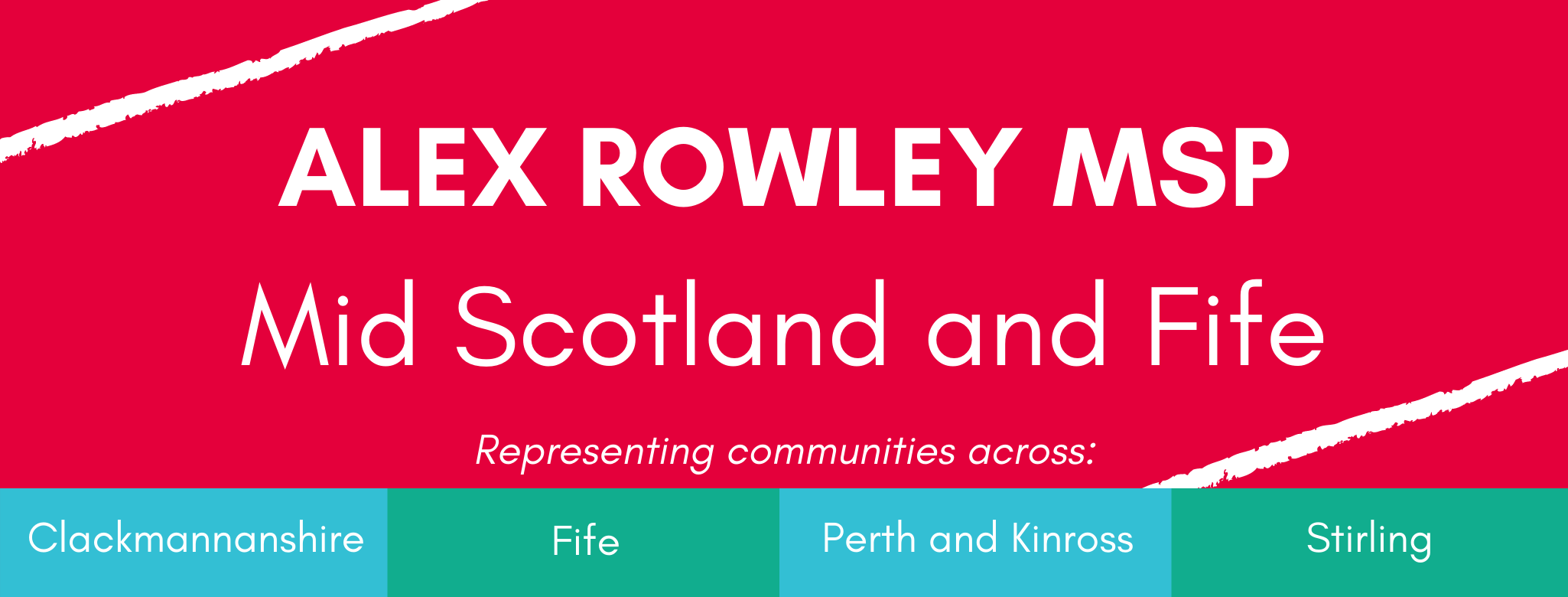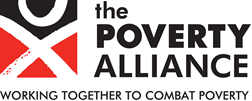The highly respected Scottish anti-poverty network, ‘the Poverty Alliance’ has issued a brief to Scottish parliamentarians before this weeks budget and their main proposal for the budget is to increase child benefit by £5 a week.
If we are to tackle poverty then we need actions that focus on doing so otherwise all the political rhetoric and legislation setting targets will amount to nothing more than warm words and meaningless legislation with targets broken as has been the case in many other areas these last few years. Our Parliament in Scotland needs to do more than offer warm words, we need action to address the unacceptable levels of poverty and deprivation across our country.
Read the Poverty Alliance Parliamentary brief below:
Parliamentary briefing: Draft Budget 2018/19
- Introduction
The Poverty Alliance is the national anti-poverty network in Scotland, established in 1992. We are an independent organisation with over 200 members drawn from the voluntary and public sectors, trade unions, researchers, faith groups and individuals with direct experience of poverty. Our aim is to work with others to enable communities and individuals to tackle poverty. We have a number of key policy areas that provide the focus for our activities; these are addressing low incomes, supporting services to address poverty, enhancing the participation of people with direct experience of poverty in policy development processes, and addressing attitudes to poverty.
- The draft budget
The Poverty Alliance believes that the budget presents an opportunity to make progress on the fight against poverty in Scotland. There are many ways that this could be done and we believe there is a need for additional resources in local government, education and housing. If we are serious about ending poverty then we need to ensure that families have access to well paid jobs, high quality and affordable childcare, breakfast clubs and after school care, and that every family has a decent, warm home to sleep in at night.
However, this budget also provides an opportunity to use our new powers; to invest in social security and to make sure that the benefits people are receiving in Scotland are enough to lead a dignified life. To this end, the Poverty Alliance is calling on the Scottish Government to commit to topping up child benefit by £5 per week.
- £5 child benefit top up
Research carried out for the Child Poverty Action Group in Scotland found that a £5 per week child benefit top up would lift 30,000 children out of poverty[1] but it would do so much more than that. Even for those families who are not lifted across the poverty line as a result of the top up would benefit, with an extra £5 per week per child making a significant impact on household finances.
We asked parents experiencing poverty what difference the £5 per week top up would make to them, some of their answers are below.
“the £5pw top up for my 2 children would make a huge difference to our quality of life… that £10pw would go a long way towards our food, just us being able to afford fresh fruit (and not have to rely on food banks) would be great for my kids and for my own self esteem. £5pw is nothing to some people but I guess they’ve never had to choose between heating and eating”
“£5pw for each of my 3 children would be a Godsend…£15pw would not only help us with better quality of food but it could go towards replacing shoes as they grow so fast (and it’s embarrassing for the children to go to school with school shoes falling apart or having to wear their old trainers or wellies when I simply can’t afford to replace them, replacing school shoes in the past has meant sacrificing on heating, or me not eating much that week).”
“Some weeks it would mean saying yes instead of no”
“I’m getting excited thinking I could maybe even manage to save £5pw as that’s £260pa and that could help give us a wee family weekend in a caravan somewhere, my children have never had a holiday, or even been out of this town, and that makes me really sad”
“It’d help with the non-uniform day. Every time you have to pay a pound. It’s to raise money for the school and it accumulates. That all adds up, it’s a lot of money.”
- Cost
The estimated cost of the £5 child benefit top up is £256 million[2], which is by no means insignificant but we know that tackling poverty requires investment to effect real change. This investment will lead to a reduction in child poverty and will therefore bring about to savings and impacts in other areas, in health and improved educational outcomes for example. Tackling child poverty must be seen as part of the preventative spend agenda.
We also know that there is support for the top up among the general public despite the cost. A survey carried out by Ipsos Mori on behalf of the Poverty Alliance found that almost two-thirds of scots supported the top up, and only 15 per cent of people were opposed to the measure. Furthermore, only a tiny six per cent were strongly opposed.
- Taxation
In recent months, we have seen increased discussion about the role of income tax powers and how they could be used to help alleviate poverty. The Poverty Alliance does not believe that reducing tax for low income earners in an effective of way of getting money into the pockets of people experiencing poverty. It is important to note that the lowest earning 40 per cent of adults and almost 20 per cent of the lowest paid workers currently have no income tax liability.[3]
Income tax powers could be useful for revenue raising and by using these powers we could invest in things like the child benefit top up. It is important that we are able to have a sensible discussion about income tax and its contribution in creating a fairer Scotland.
Scotland does of course have tax raising powers beyond income tax and these must be explored to their fullest potential. The Poverty Alliance does not believe that cutting Air Passenger Duty should be a priority for this Parliament.
- Conclusion
In the wake of the newly passed Child Poverty Act this budget is the opportunity to begin taking meaningful action towards meeting the targets for the eradication of child poverty in 2030. We now have the power to top up child benefit, the evidence to show the impact it would make and the public support to do so. In the face of expected increases in child poverty over the coming years, now is the time to time to take action that will help lift thousands out of poverty.
Of course the top up cannot be viewed in isolation, it is only one of a number of measures needed to tackle poverty in Scotland but it is a substantial one. The financial implications are significant but should be viewed through the lens of Scotland’s new tax raising powers. Furthermore, we must also give consideration to the cost of not tackling child poverty.
Fundamentally, much of this goes back to thinking about what type of country we want to live in and how we achieve that. If we are serious about tackling poverty in Scotland then we need to make radical and sometimes difficult choices.
[1] Keung, A. and Bradshaw, J. (2017) Analysis of the impact of increases to Child Benefit and Child Tax Credit on child poverty rates in the UK and Scotland http://jonathanbradshaw.blogspot.co.uk/2017/10/analysis-of-impact-of-increases-to.html
[2] Child Poverty Action Group in Scotland (2017) Give Me 5 FAQs http://www.cpag.org.uk/content/give-me-five-faqs
[3] Eiser, D. (2016) Poverty Alliance Devolved Taxation in Scotland http://www.povertyalliance.org/userfiles/files/PA_Briefing23_Taxation_FINAL2.pdf






